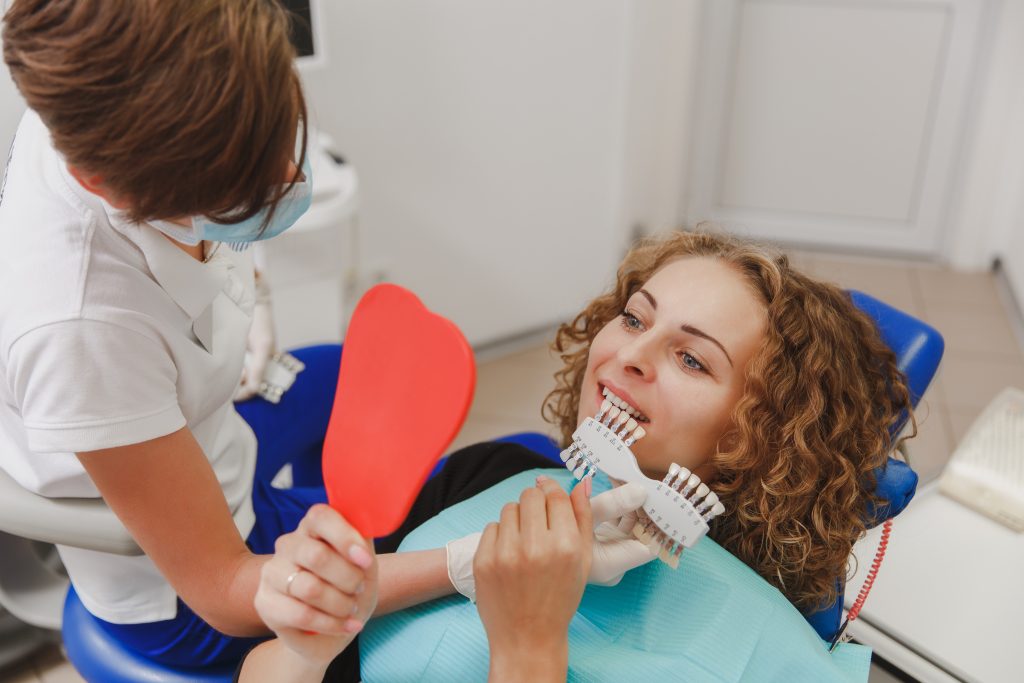

What is TMD and TMJ?
Your temporomandibular joint is the hinge that connects your jaw to your skull – it is this joint that enables the movement of your jaw up and down and left and right, to allow for chewing, yawning and talking. Any problems that occur with this particular part of the skull are given the name temporomandibular disorders (TMD). These are also sometimes called TMJ dysfunction, referring to temporomandibular joint.
Pain in this part of your jaw is particularly common. Around 30 percent of adults will experience it at some point in their lifetimes, and usually it will go away of its own accord
Symptoms of TMD/TMJ
- Muscle pain in and around your jaw
- A clicking or popping sound as you chew or move the jaw
- Pain in front of your ear that may move to your cheek and temple
- Headaches and migraines
- Earache, a buzzing sound or a blocked feeling
- Tight or locked jaw
Our dentist will discuss your concerns and history of TMD. Should you come to us with persistent pain, they may offer you one of a range of options to tackle the problem.
Mouthguards can sometimes be made up specially to fit your mouth, in order to take the pressure away from any biting or grinding. If this is causing the problem, relieving the tension may help diminish the pain.
Painkillers such as ibuprofen, codeine or paracetamol can also help with the immediate pain. Your dentist may prescribe a stronger painkiller depending on your situation, this could be a muscle relaxant or an antidepressant. If arthritis is the culprit, then your dentist may suggest a steroid injection to help to reduce the swelling. In some cases, one injection can solve the problem completely.
Have Questions?
01751 474460
Feel free to call us if you have any unanswered questions about TMJ and TMD Evaluations.



















